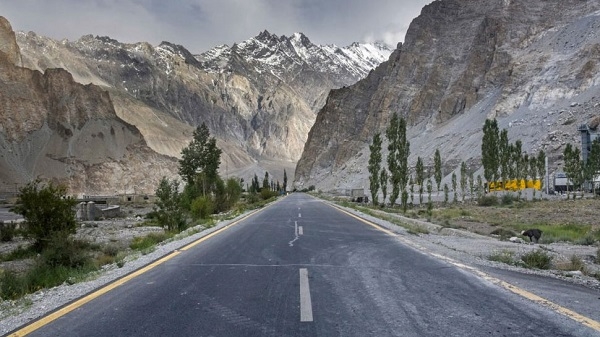Karakoram highway- India's fish hook strategy move!
Total Views |
New Delhi, January 19: With illicit intentions to mount further pressure on Ladakh, China on Monday proffered its decision to build a road that will link the 800 kilometre Karakoram highway with Astore in Pakistan occupied Gilgit Baltistan. China with this tends to connect Yarkand, a former Buddhist fount, and later a cultural heartbeat of the ethnic Uyghur culture, with Astore via the Karakoram highway.
While matching Chinese deployments as well as countering the initial strategic advantage by taking the Kailash range south of Pangong Tso lake on August 29, there are clear indications that India is preparing to mount its riposte not in the Himalayas, but in the waters of the Indo-Pacific.

India, in partnership with Japan and the United States has crossed significant milestones to hit China where it hurts most along key shipping lanes used by Chinese commercial ships that pass through the Andaman and Nicobar Islands. India has linked the islands, with the 'fish-hook' undersea sensors chain, which had been previously marshalled by Japan and the United States to monitor the movement of Chinese ships and submarines in the Pacific.
The islands are a chain of 572 islands stretching over 800 kilometer north to south at the western entrance of the Strait of Malacca. The straddle one of the most critical naval and trade chokepoints in the world. The fish-hook network is an extension and advancement over the Sound surveillance system nets (SOSUS) established by the United States in the fifties to monitor ship and submarine movements of the former Soviet Union. It is a more sophisticated SOSUS, which has replaced the older one, to track ships and submarines belonging to the People's Liberation Army Navy (PLAN) of China.
A collaboration with the Indo-Pacific Quad comprising India, Japan, Australia and the United States is on the drawing board to mount real pressure on the Chinese, who are beefing up deployments in Ladakh. If required the goal would be mount a collective effort that can impede Chinese commercial shipping passing through the 10 degree and six-degree channels in the Andaman sea.
It is believed that once the 33 meter wide road is built, China will be able to channel heavy artillery into Gilgit Baltistan, opening the possibility of threatening Indian positions in Ladakh. Astore district is west of Skardu, a division headquarters of Pakistan, not far from Ladakh, where China and India are locked in an extended military standoff.
With Eidgah as its headquarters, Astore, is one of the 14 districts of Gilgit Baltistan. A low quality road currently links Eidgah with Karakoram highway, which is 43 kilometres away. Analysts say, the construction of a new road will add to China and Pakistan's capacity to launch a two-front war against India in Kashmir, unless effectively deterred by New Delhi.

